Family Game Night: The Ultimate Guide to Board Games That Bring Joy and Learning
For decades, board games have been at the heart of family entertainment, transcending the boundaries of age and time. These games are not just a means to pass the hours; they are treasure troves of laughter, bonding, and valuable learning experiences. From the classic clatter of dice on a Monopoly board to the strategic planning in Settlers of Catan, board games have a unique way of bringing families together, creating a space where memories are made and life lessons are learned. 🎲👨👩👧👦
In this comprehensive guide, we delve into the enchanting world of board games. We understand that in our fast-paced, digital-driven world, taking time to sit around a table and play a physical game might seem quaint. Yet, this is precisely what makes board games so special. They are an antidote to the screen-focused lifestyle, a reminder of the joy of face-to-face interaction, and a bridge connecting generations through shared play.
Whether you are a seasoned board game enthusiast or a family looking to start a new tradition, this guide is packed with insights to help you make the most of your game nights. We’ll cover everything from selecting the right game for your family’s interests and age group, to tips on making game night a regular and much-anticipated event in your household.
Expect to find practical advice on how to engage children of all ages, insights into games that subtly teach valuable life skills, and suggestions on how to keep the atmosphere light and enjoyable – even when the competition gets fierce. Our journey will also take us through the latest trends in the board game world, including how technology is enhancing the traditional gaming experience.
So, dust off those game boxes, gather around the table, and prepare to rediscover the joy of board games. Let’s roll the dice and begin our adventure into the fun-filled world of family game night! 🎉👨👩👧👦🎲
Diverse Worlds on a Game Board
When it comes to family board games, the variety is as vast and diverse as the imaginations they spark. These games take players on journeys through countless worlds, from medieval landscapes to futuristic galaxies, and everything in between. This section will guide you through the different types of board games that can bring excitement and variety to your family game nights.
Strategy Games:
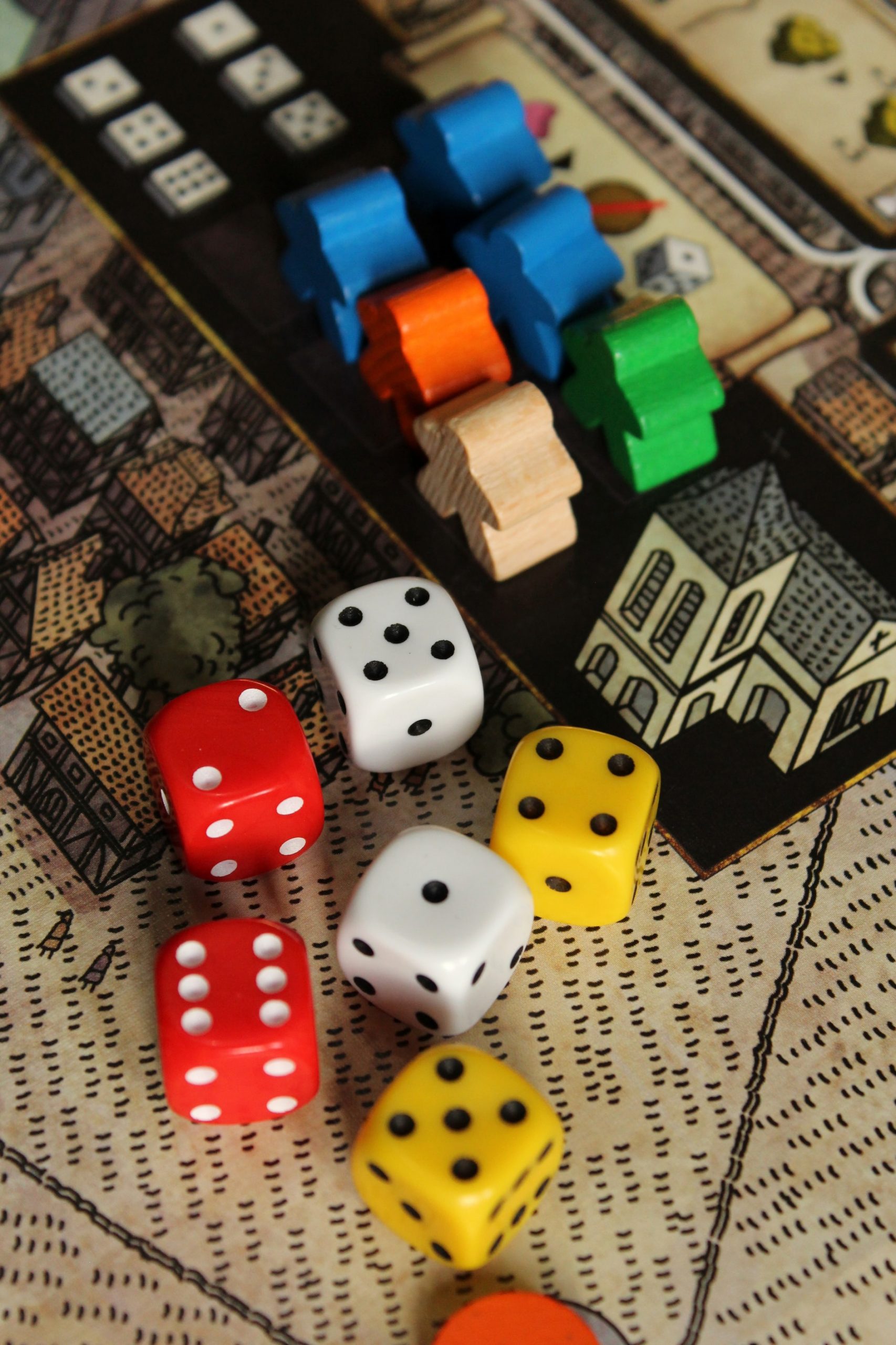
For families who love a challenge, strategy games are a perfect choice. These games, like “Catan” or “Ticket to Ride,” require planning and tactical thinking, encouraging players to outwit their opponents through careful decision-making. They’re not just about luck; strategy games test your mental prowess and decision-making skills, making them both fun and mentally stimulating.
Party Games:

If your family prefers laughter and lighthearted fun, party games are the way to go. Titles like “Codenames” or “Pictionary” are excellent for inducing giggles and creating an upbeat atmosphere. They often involve elements of creativity, teamwork, and sometimes a bit of silliness, ensuring that everyone from the youngest to the oldest can participate and enjoy.
Cooperative Games:
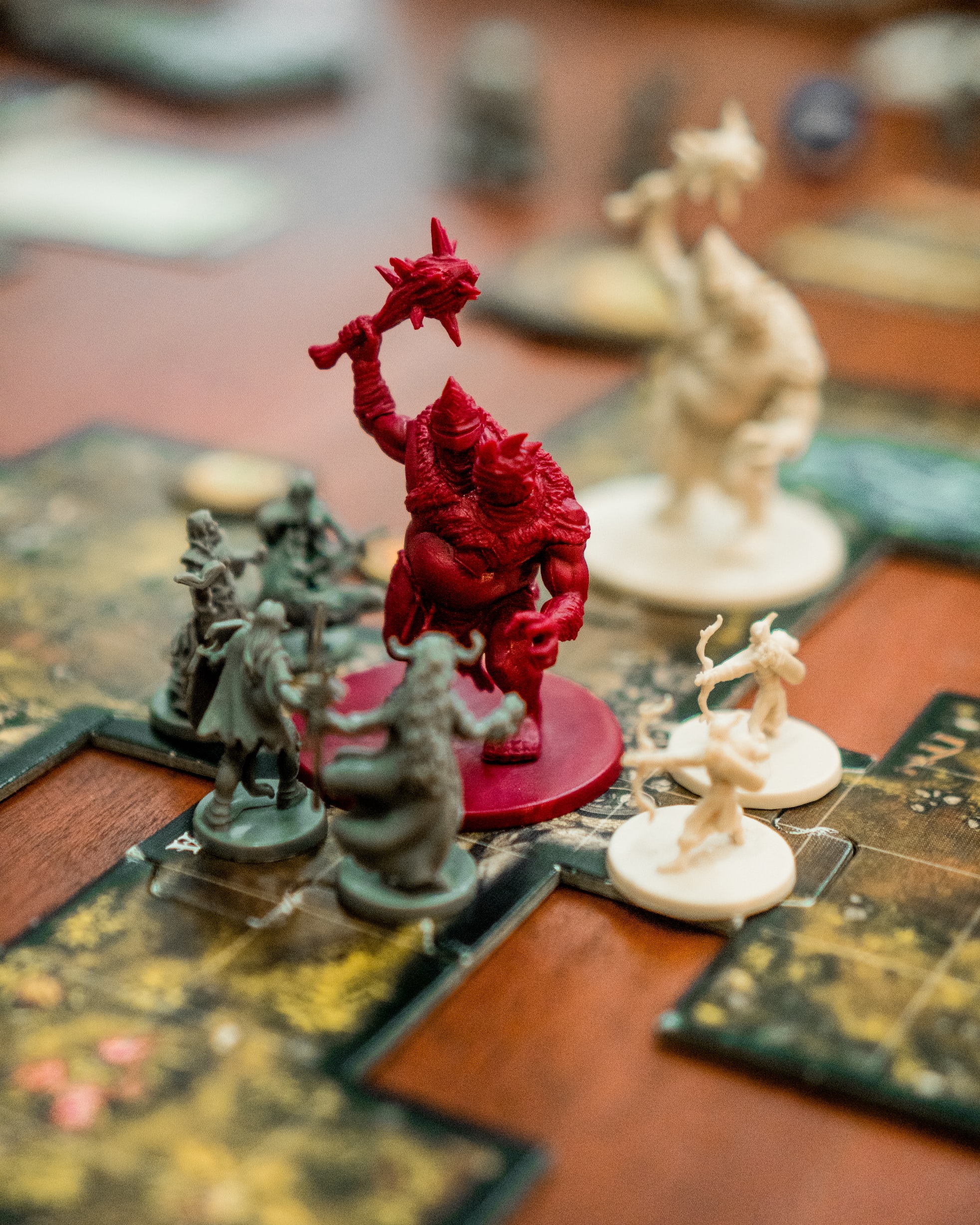
In cooperative games, like “Pandemic” or “Forbidden Island,” players work together towards a common goal, making them ideal for families looking to foster teamwork and collaboration. These games often involve problem-solving and strategic planning, where every player’s contribution is vital to the group’s success.
Educational Games:

For families with young children, educational games can be both entertaining and instructive. These games seamlessly blend learning with play, covering topics like math, spelling, geography, and more. Games like “Scrabble Junior” or “Ticket to Ride: First Journey” offer an engaging way for kids to learn and develop new skills while having fun.
Role-Playing Games (RPGs):

RPGs like “Dungeons & Dragons” offer a unique storytelling experience where players embark on epic adventures in fantastical worlds. These games stimulate the imagination and encourage creativity, as players create their characters and narratives, making them ideal for families who love storytelling and imaginative play.
Classic and Traditional Games:
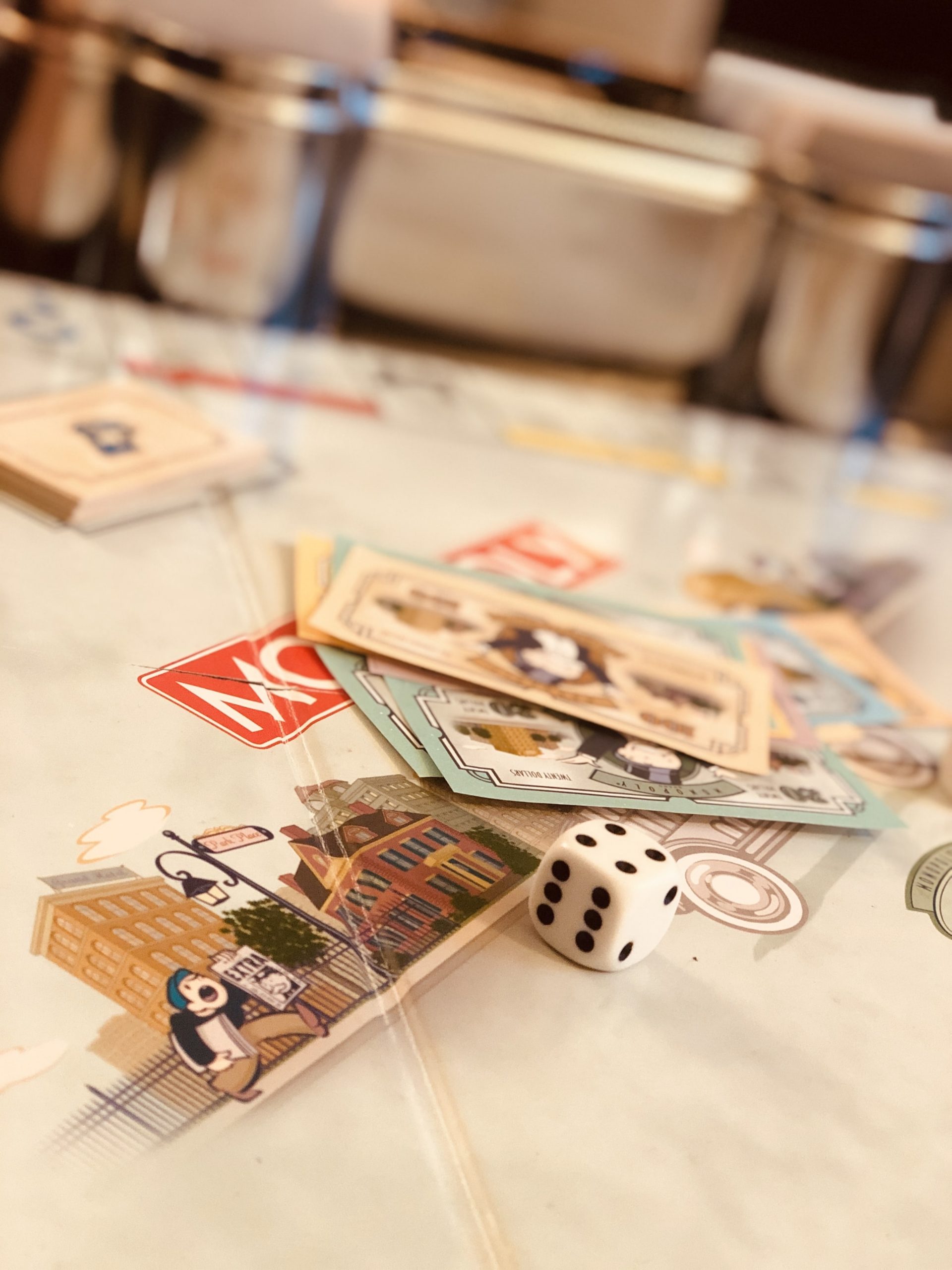
Sometimes, the classics are what resonate most. Games like “Monopoly,” “Chess,” and “Clue” have stood the test of time for a reason. They offer straightforward fun and are often steeped in nostalgia, bringing back fond memories for parents and creating new ones for children.
In this section, we’ve explored just a glimpse of the diverse worlds board games offer. Each type of game brings its own flavor and excitement to the table, ensuring that no two game nights are ever the same. Whether you’re strategizing for world domination, solving a mystery, or embarking on a fantasy adventure, board games offer a universe of possibilities, all waiting to be discovered on your family game night.
Fun for All Ages
Finding a board game that captivates and engages family members of different ages can be a delightful challenge. The key to a successful family game night lies in selecting games that are universally appealing, balancing simplicity for the younger players with enough depth to keep the adults engaged. In this section, we’ll dive into how to choose games that are not only fun but also age-appropriate for everyone in the family.
Games for Young Children:
When playing with young children, games that are colorful, quick, and easy to understand are ideal. Look for games with simple rules and short playtimes to keep their attention. Games like “Candy Land” or “Hungry Hungry Hippos” are perfect as they are not only visually appealing but also help in developing color recognition and hand-eye coordination.
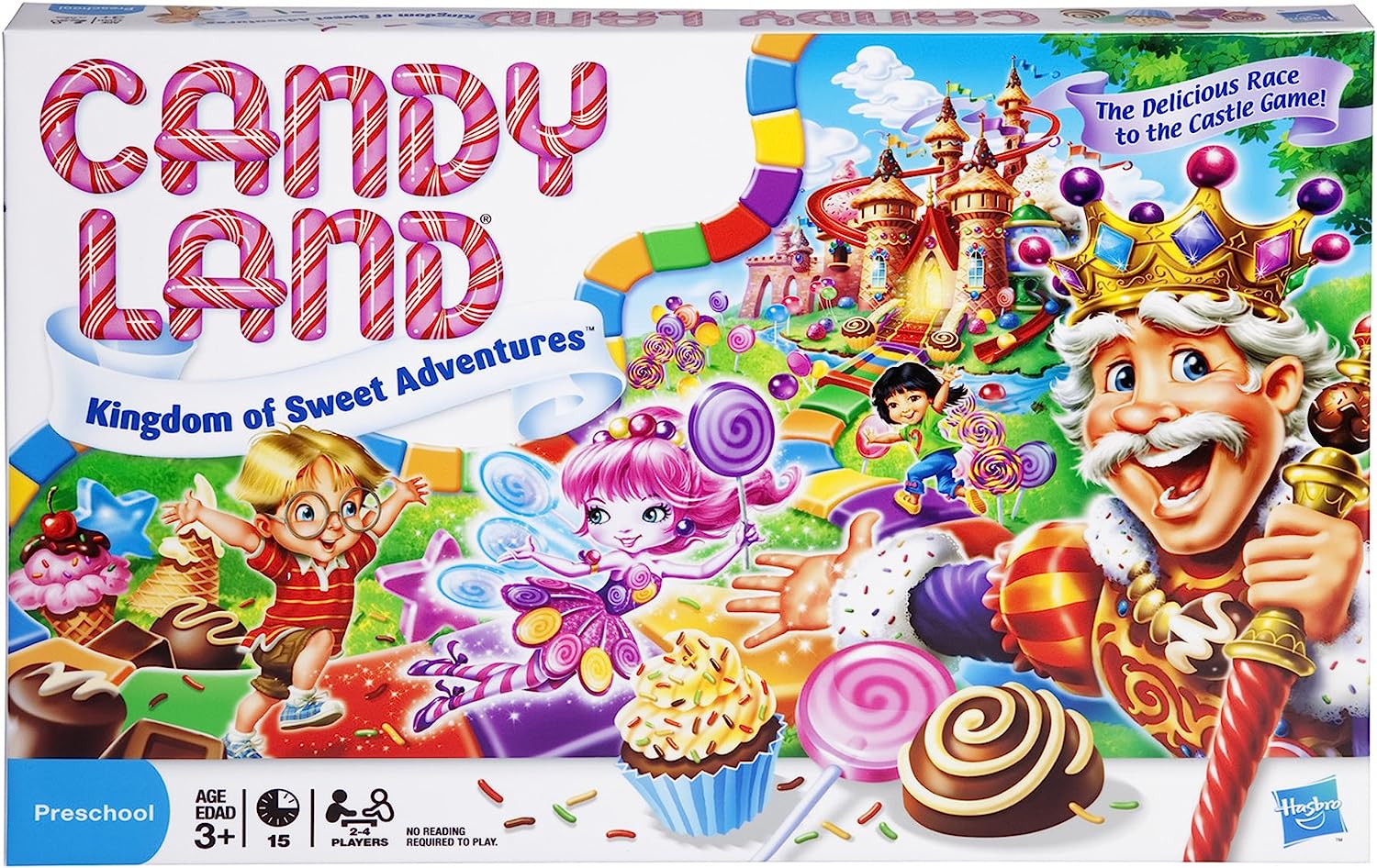

Engaging Tweens:
Tweens are often looking for something a bit more challenging than the games they played as younger kids, but not as complex as some adult games. This age group enjoys games that involve a bit of strategy or skill, like “Carcassonne” or “Ticket to Ride.” These games can help develop critical thinking and planning skills, while still being fun and engaging.
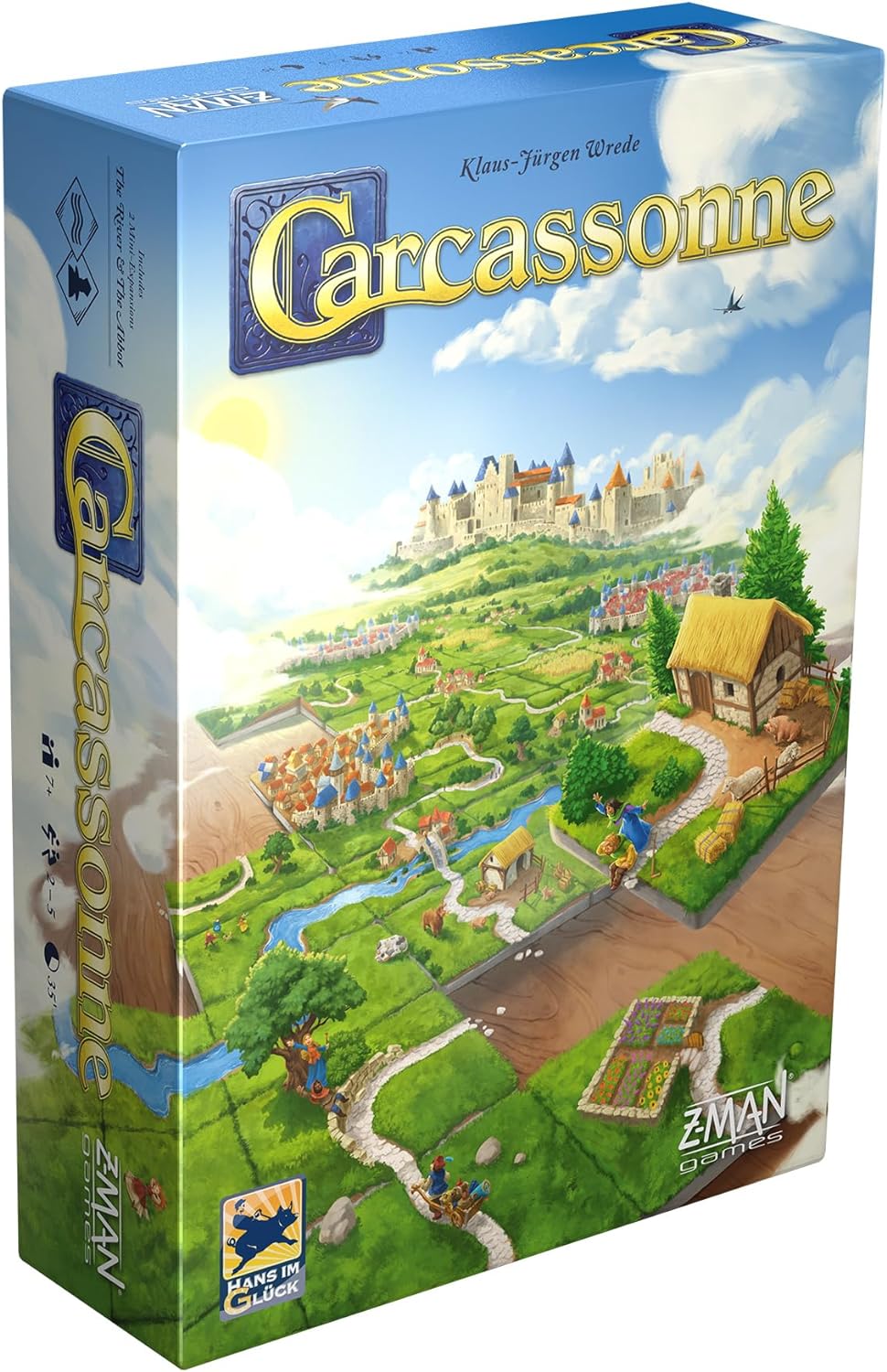
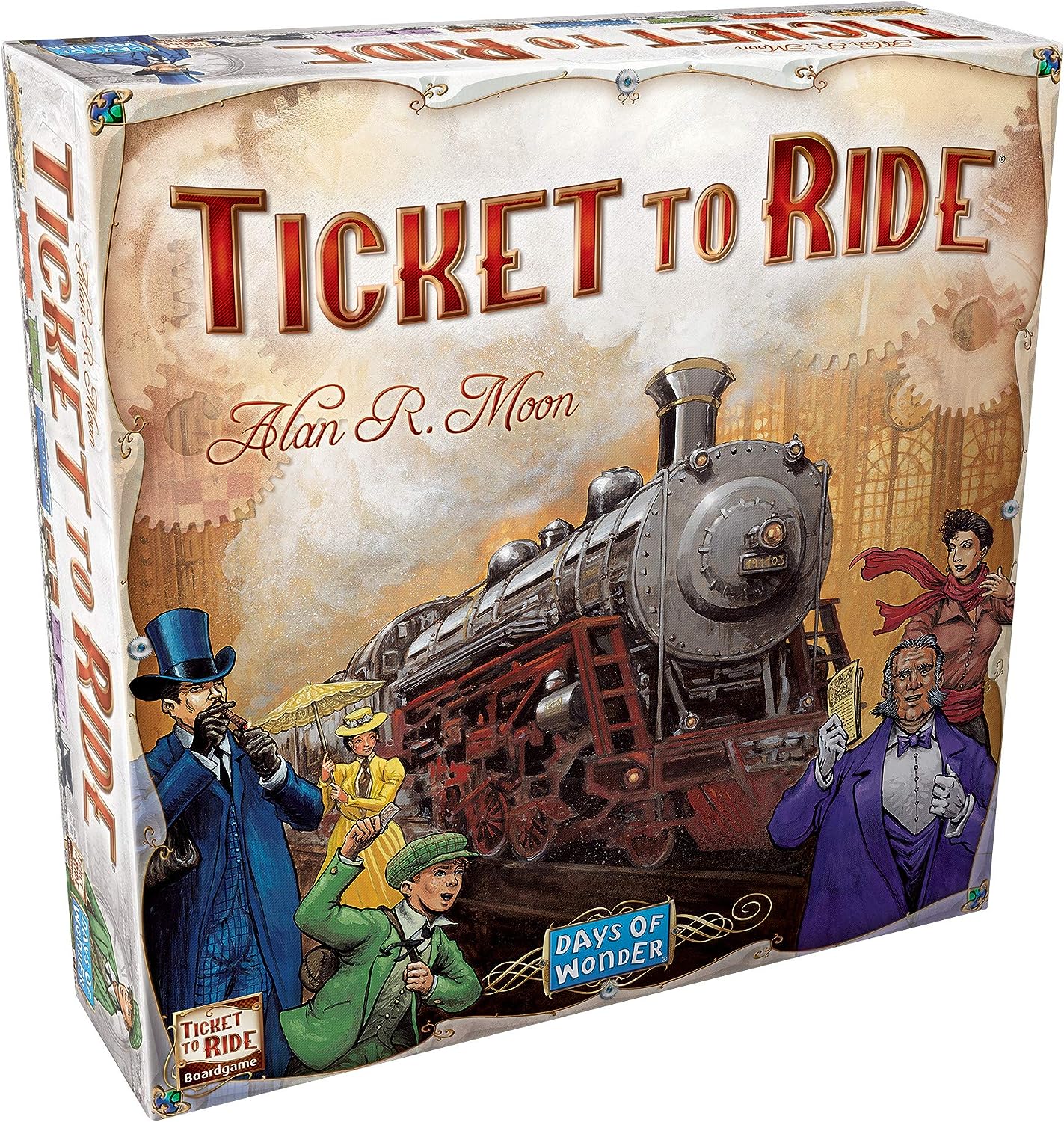
Involving Teenagers:
Teenagers might enjoy games that offer more complexity and strategic depth. Games like “Settlers of Catan” or “7 Wonders” are great for this age group as they require strategic thinking and offer a competitive edge. These games also provide an opportunity for teenagers to engage in more mature themes and game mechanics.
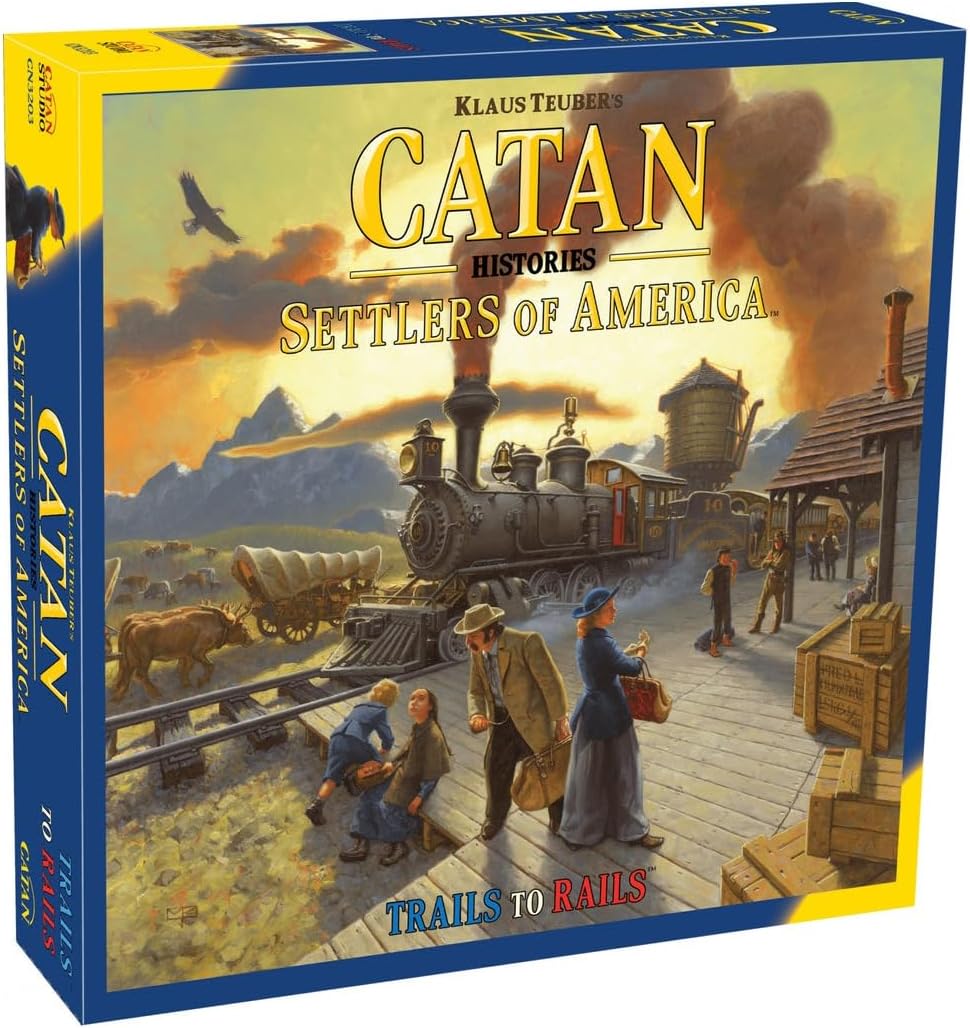
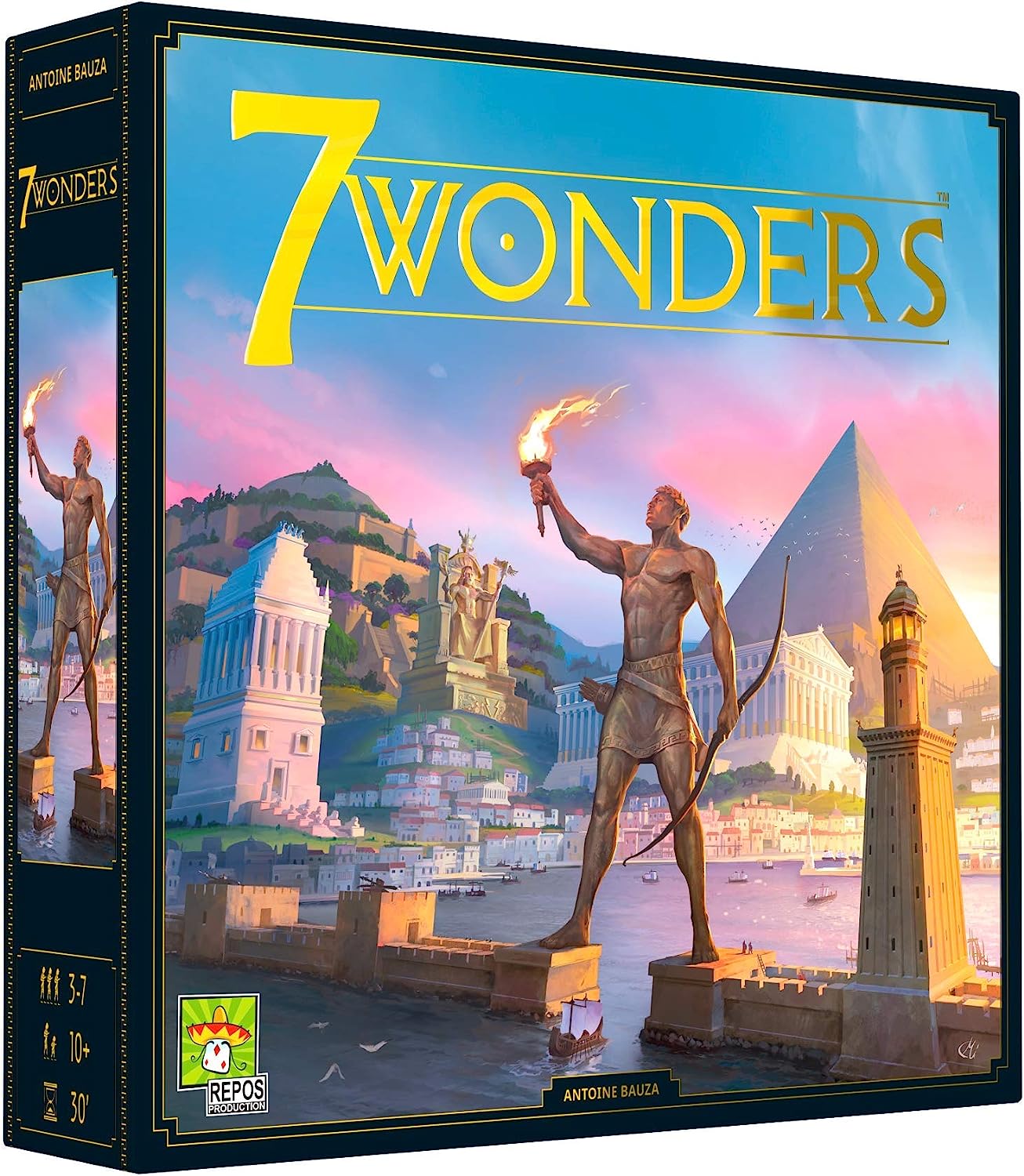
Games for Adults:
For adult players, the options are vast. Games with intricate strategies, complex narratives, or longer playtimes can be particularly appealing. Titles like “Terraforming Mars” or “Twilight Struggle” offer depth and complexity, making them perfect for game nights that are more adult-focused.
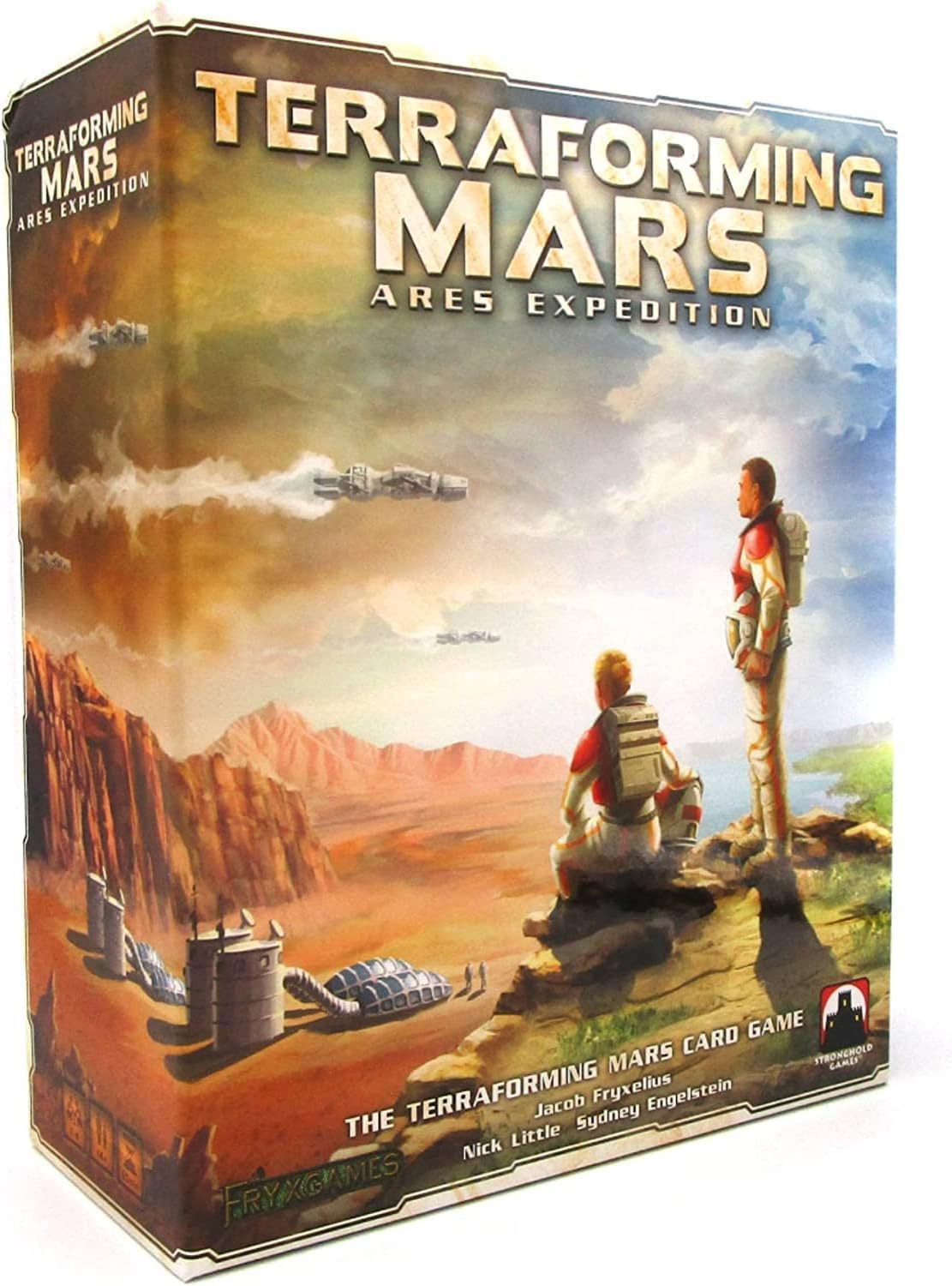
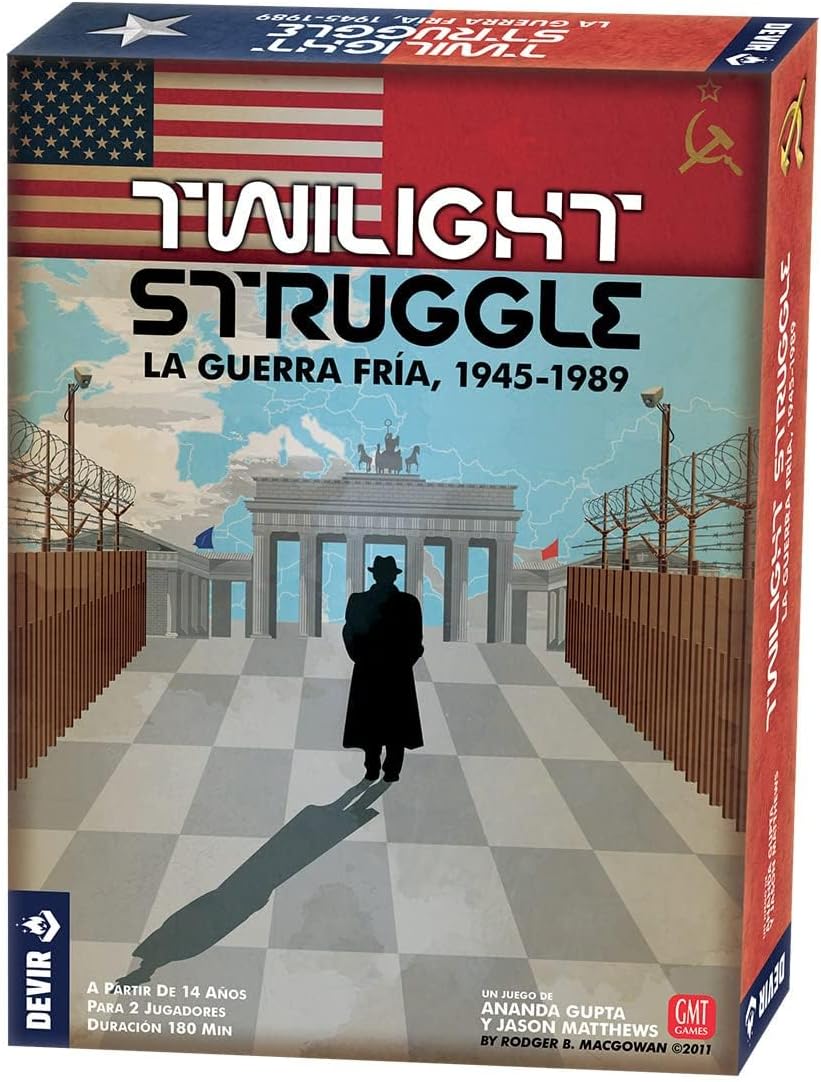
Games That Cross Generations:
Some games have a magical way of bridging the gap between young and old. “Uno,” “Apples to Apples,” and “Blokus” are excellent examples of games that can be enjoyed by players of all ages. They’re easy enough for kids to understand and engaging enough to keep adults entertained.
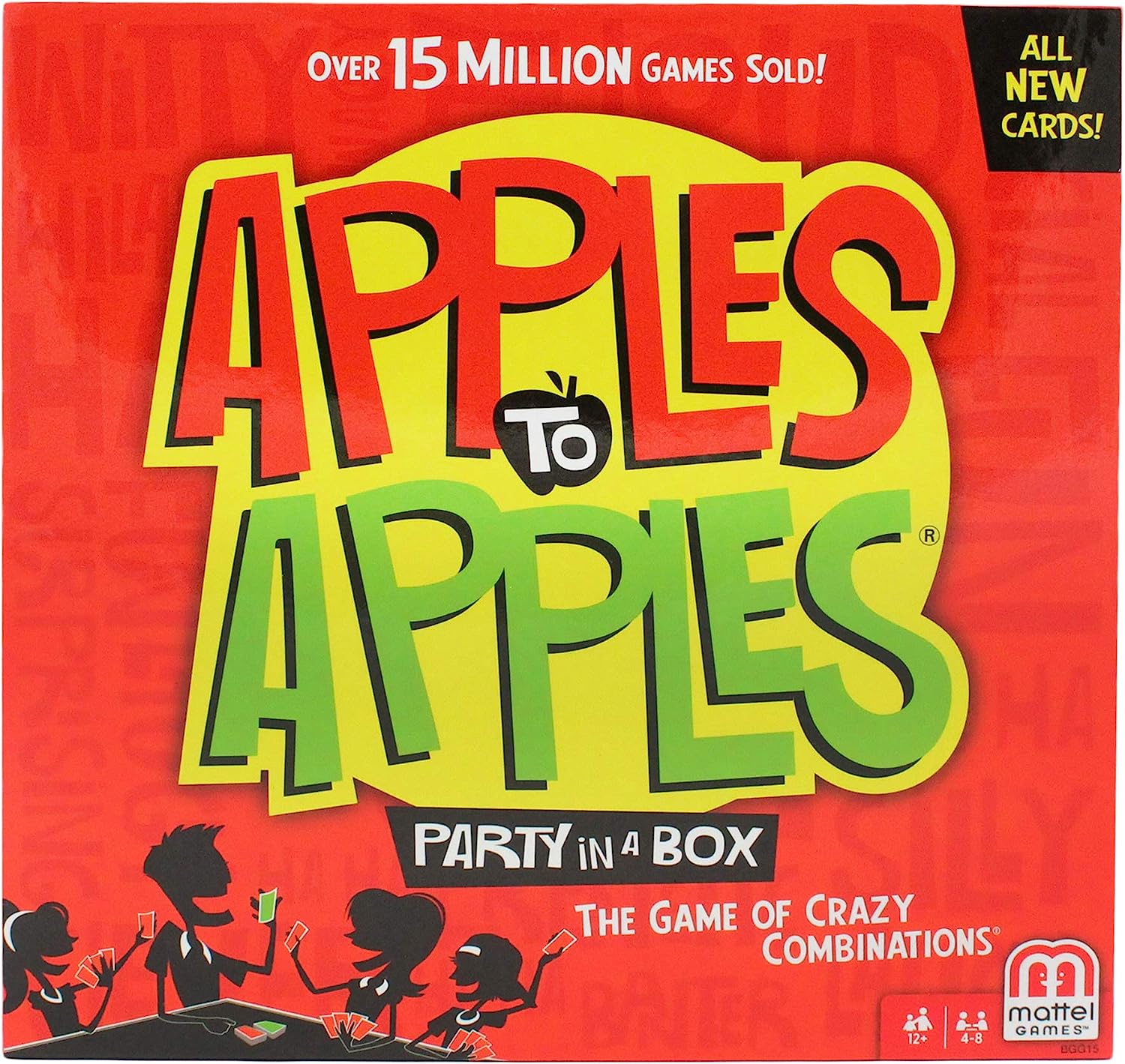
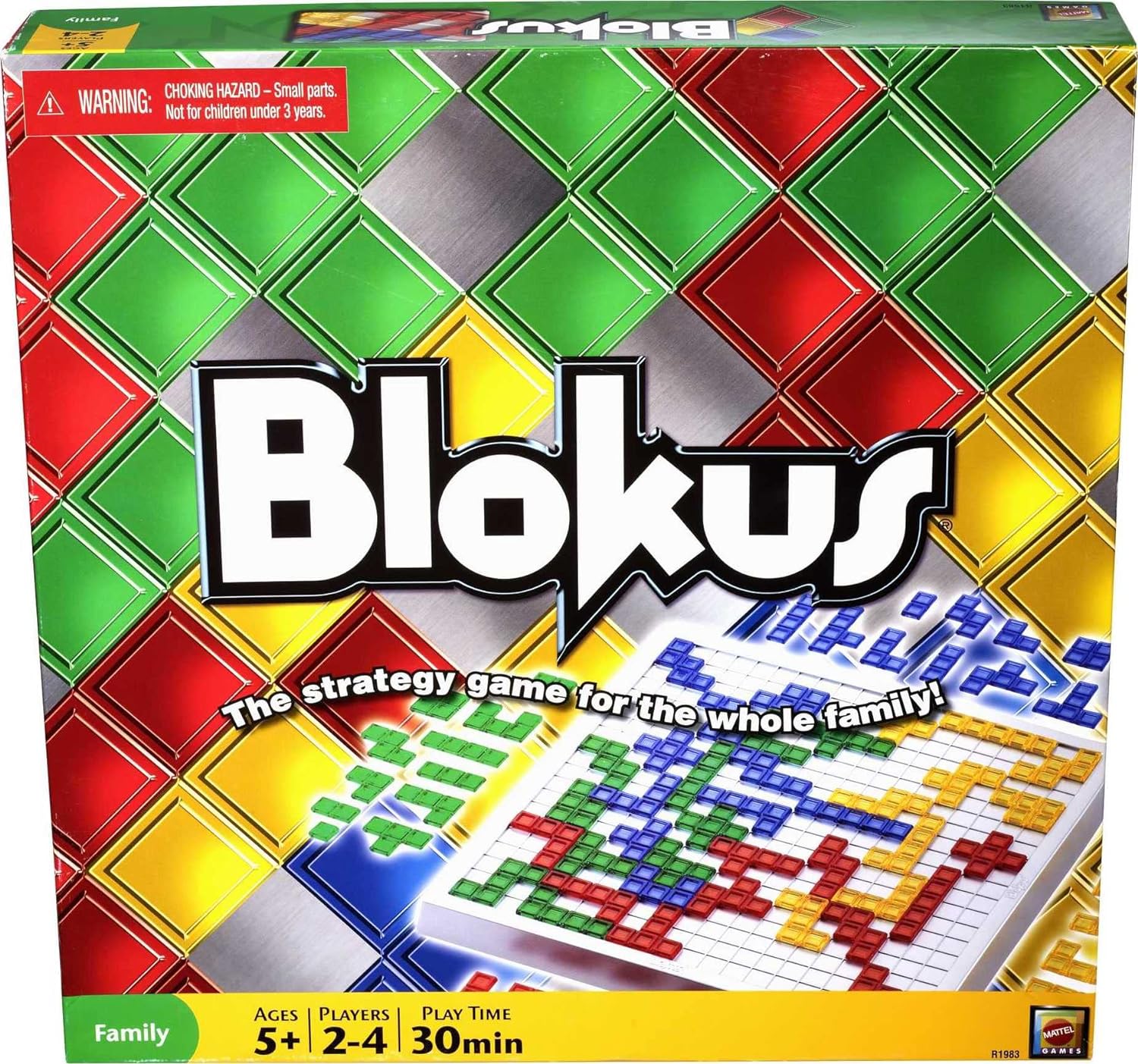
Choosing the Right Game:
When selecting a game, consider the youngest player’s abilities and the oldest player’s interest. The goal is to find a balance that allows everyone to participate and enjoy the experience. Also, be open to modifying the rules slightly to accommodate younger players, if necessary.
In conclusion, the perfect family game night involves a blend of fun, challenge, and accessibility for all ages. By carefully selecting games that cater to the diverse interests and skill levels of your family members, you ensure that everyone from the youngest to the oldest can join in the fun and make lasting memories together.
Play and Learn
Board games are not just about entertainment; they are a treasure trove of learning opportunities cleverly disguised as fun. This blend of play and education is what makes board games a unique tool in both cognitive development and skill-building for people of all ages. In this section, we will explore how board games can be both enjoyable and educational, enhancing various skills while providing entertainment.
Developing Strategic Thinking and Problem Solving:
Many board games require players to think ahead and strategize, providing a fun way to develop critical thinking and problem-solving skills. Games like “Chess” and “Risk” require players to anticipate opponents’ moves, plan strategies, and adapt to changing situations, enhancing their analytical thinking skills.


Boosting Mathematical and Logical Abilities:
Games involving numbers, patterns, or logic are excellent for sharpening mathematical skills. For instance, “Ticket to Ride” requires players to plan routes and manage resources, subtly incorporating elements of arithmetic and planning. “Blokus” challenges players to think geometrically, promoting spatial reasoning.
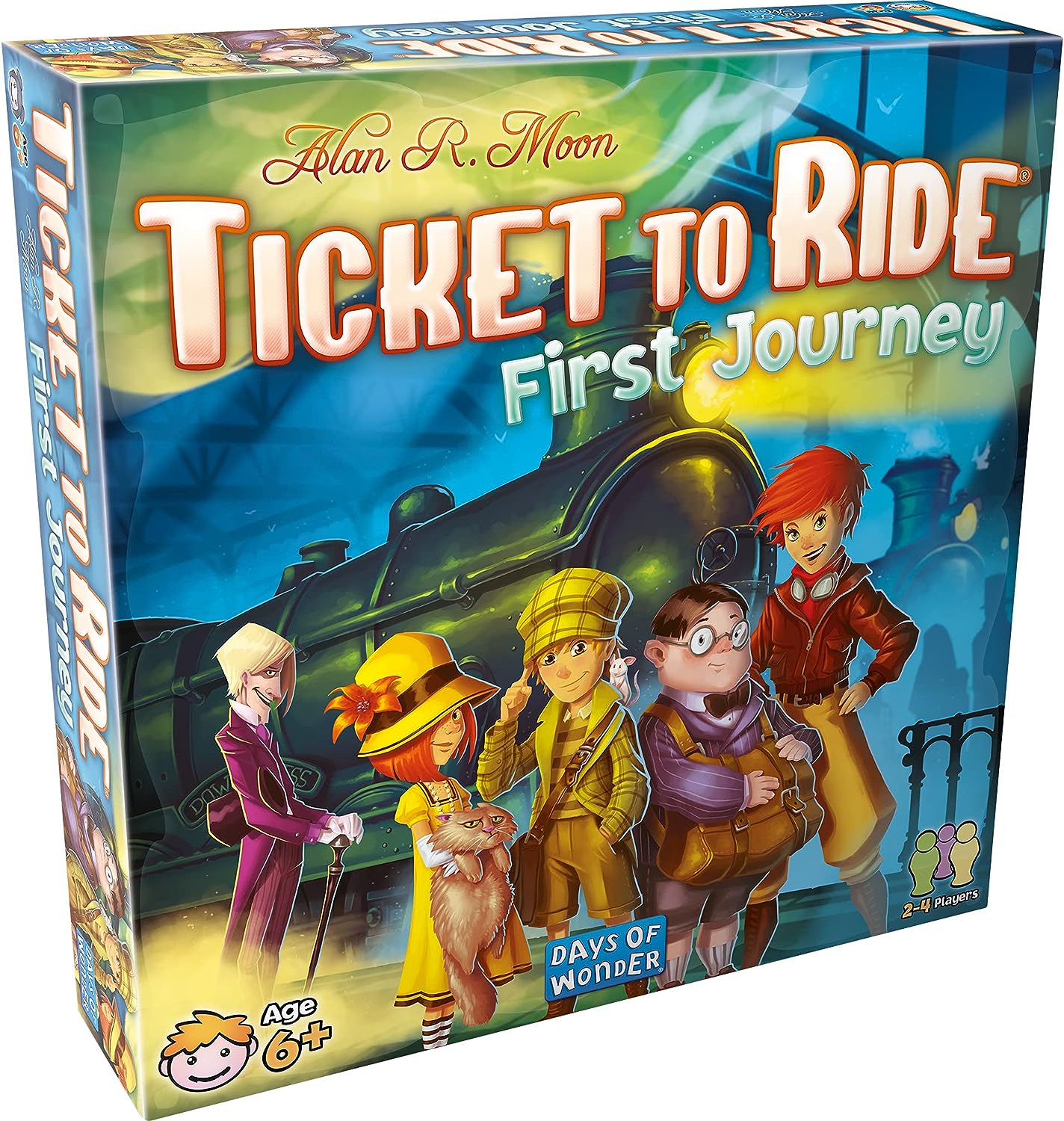
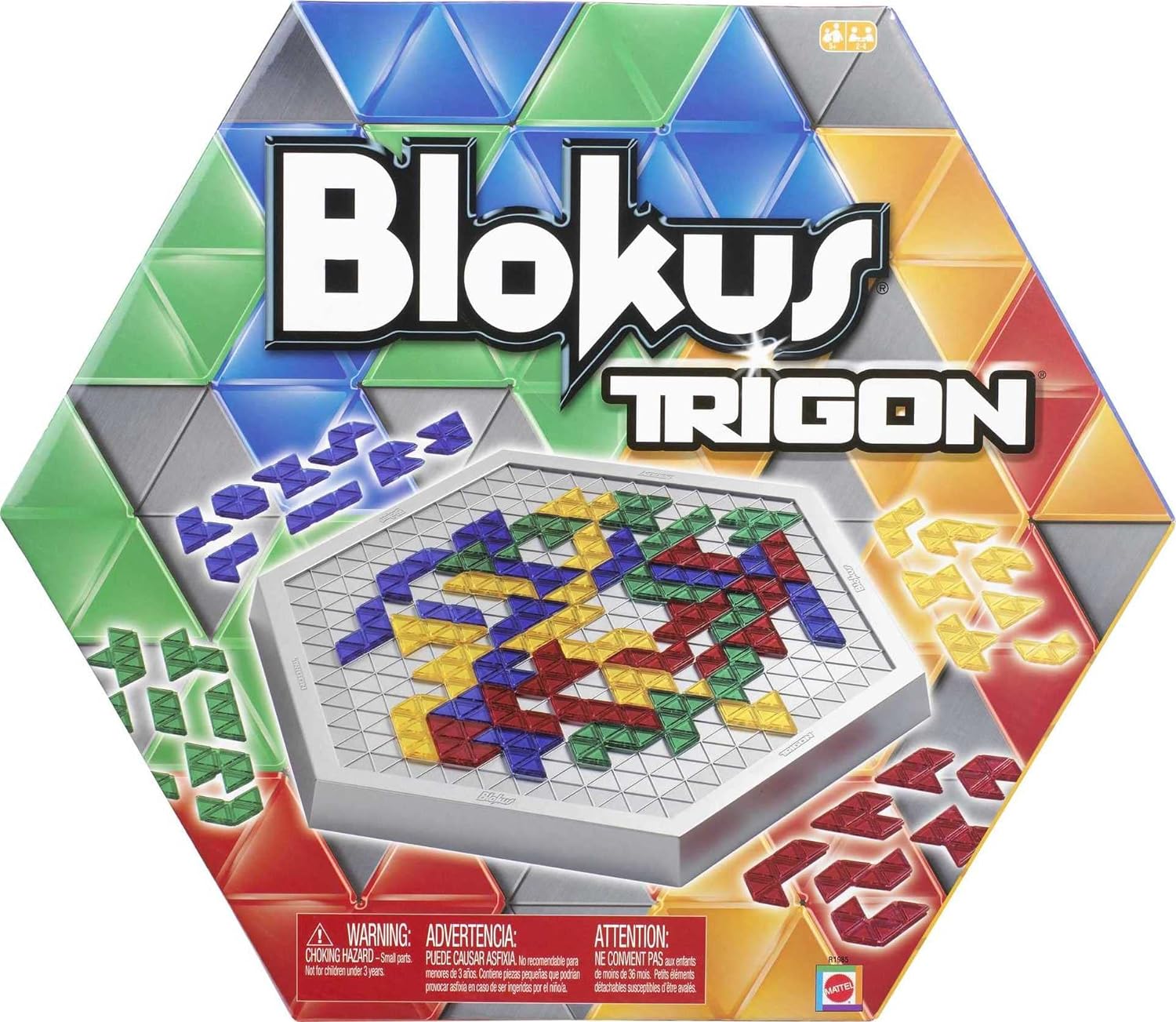
Enhancing Language and Communication Skills:
Word-based games like “Scrabble” or “Bananagrams” are not only fun but also enrich vocabulary and spelling skills. They encourage players to think creatively with language and to expand their linguistic abilities. Additionally, games that require discussion and negotiation, such as “Dixit” or “Catan,” can enhance communication skills and verbal expression.
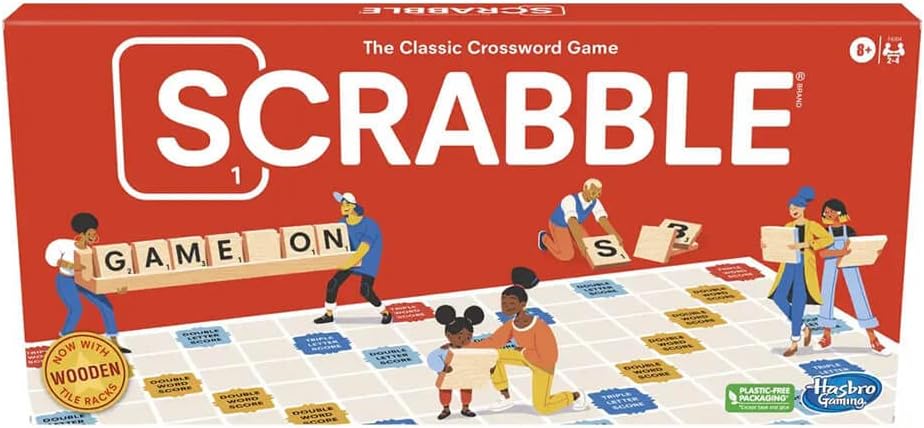

Learning About History and Culture:
Some board games are set in historical contexts or are based on real-world events, offering an engaging way to learn about history and different cultures. For example, “Ticket to Ride: Europe” can spark interest in European geography and history, while “7 Wonders” immerses players in the ancient world.
Fostering Teamwork and Social Skills:
Cooperative games like “Pandemic” or “Forbidden Desert” require players to work together to achieve a common goal. These games teach the importance of teamwork, communication, and collective problem-solving, which are valuable life skills.

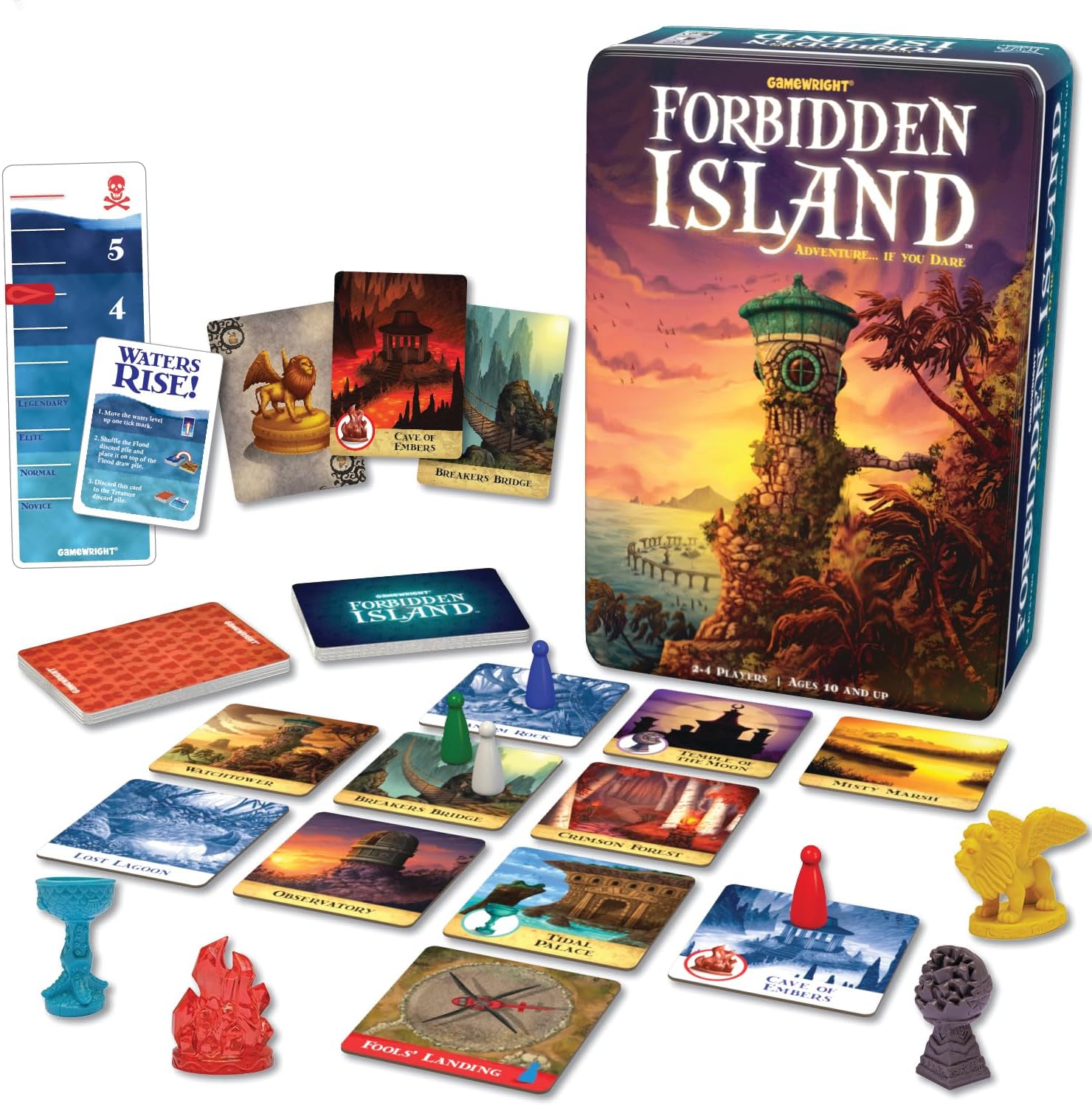
Building Patience and Emotional Resilience:
Board games often involve waiting for turns and dealing with unexpected game developments, which can help in building patience and emotional resilience. Learning to cope with setbacks in a game can translate to better handling of challenges in real life.
Encouraging Healthy Competition:
While playing board games, children and adults alike learn about healthy competition. They understand that while winning is enjoyable, it’s the experience and learning from the game that truly counts.
In summary, board games are a perfect blend of entertainment and education. They provide a platform for learning and skill development, making them an invaluable addition to family game nights. By choosing the right games, you can turn playtime into a fun-filled learning experience that benefits all members of the family.
Strengthening Family Bonds
In our fast-paced, technology-driven world, finding time to unplug and connect with family can be a challenge. This is where board games shine as a means of strengthening family bonds. They provide a rare opportunity for face-to-face interaction, laughter, and creating shared memories. In this section, we’ll explore how board games can enhance family relationships and foster a sense of togetherness.

Encouraging Teamwork and Collaboration:
Board games often require players to work together, make decisions collectively, or compete in friendly rivalry. This collaboration is a fantastic way for families to practice teamwork. Games like “Charades” or “Pictionary” can encourage families to work as a team, promoting a sense of unity and understanding among members.
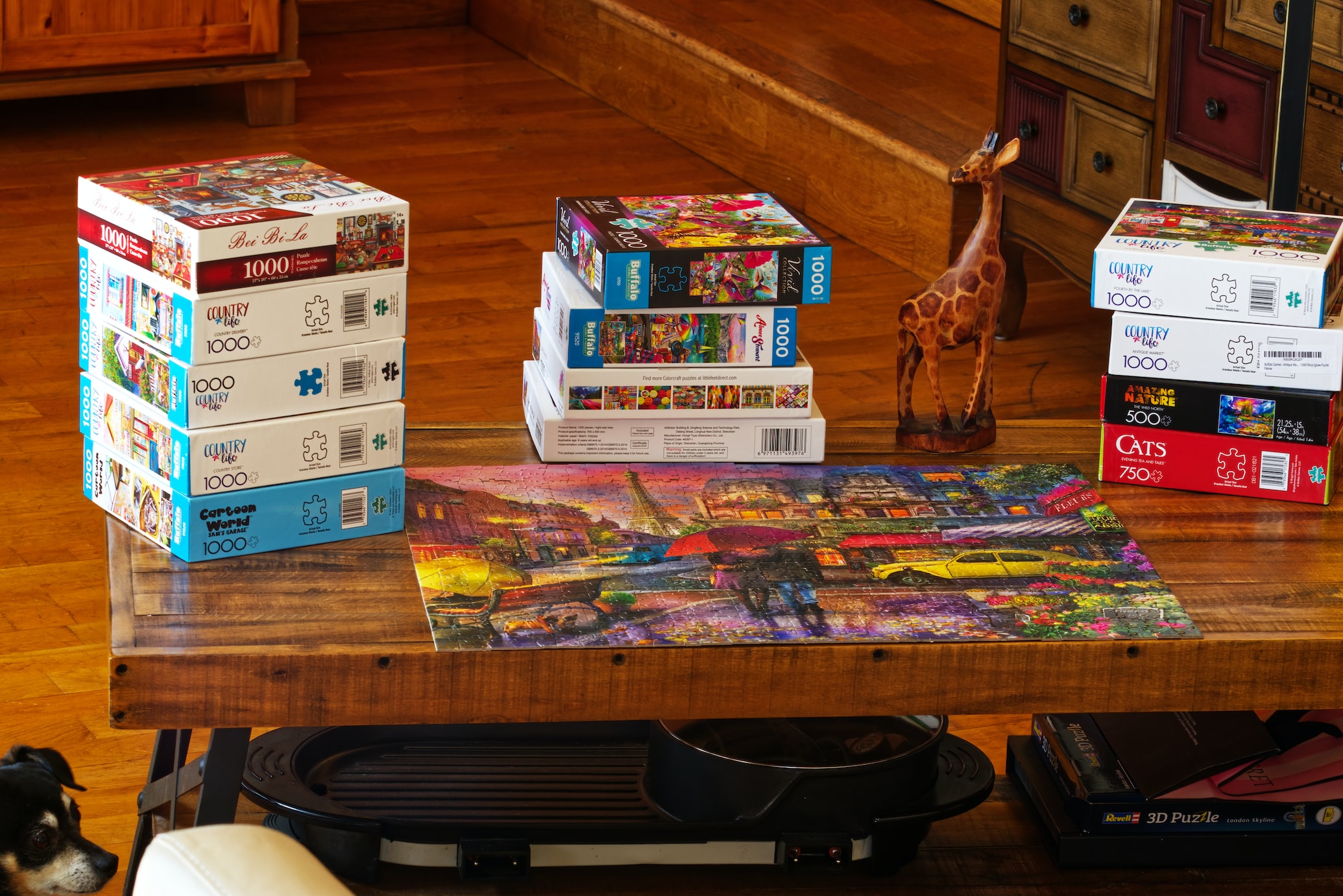
Creating Shared Experiences:
Family game nights are about more than just playing games; they’re about creating shared experiences. These moments become cherished family memories, stories that will be told and retold for years. Whether it’s the excitement of a close game or the humor of an unexpected play, these experiences strengthen familial ties.
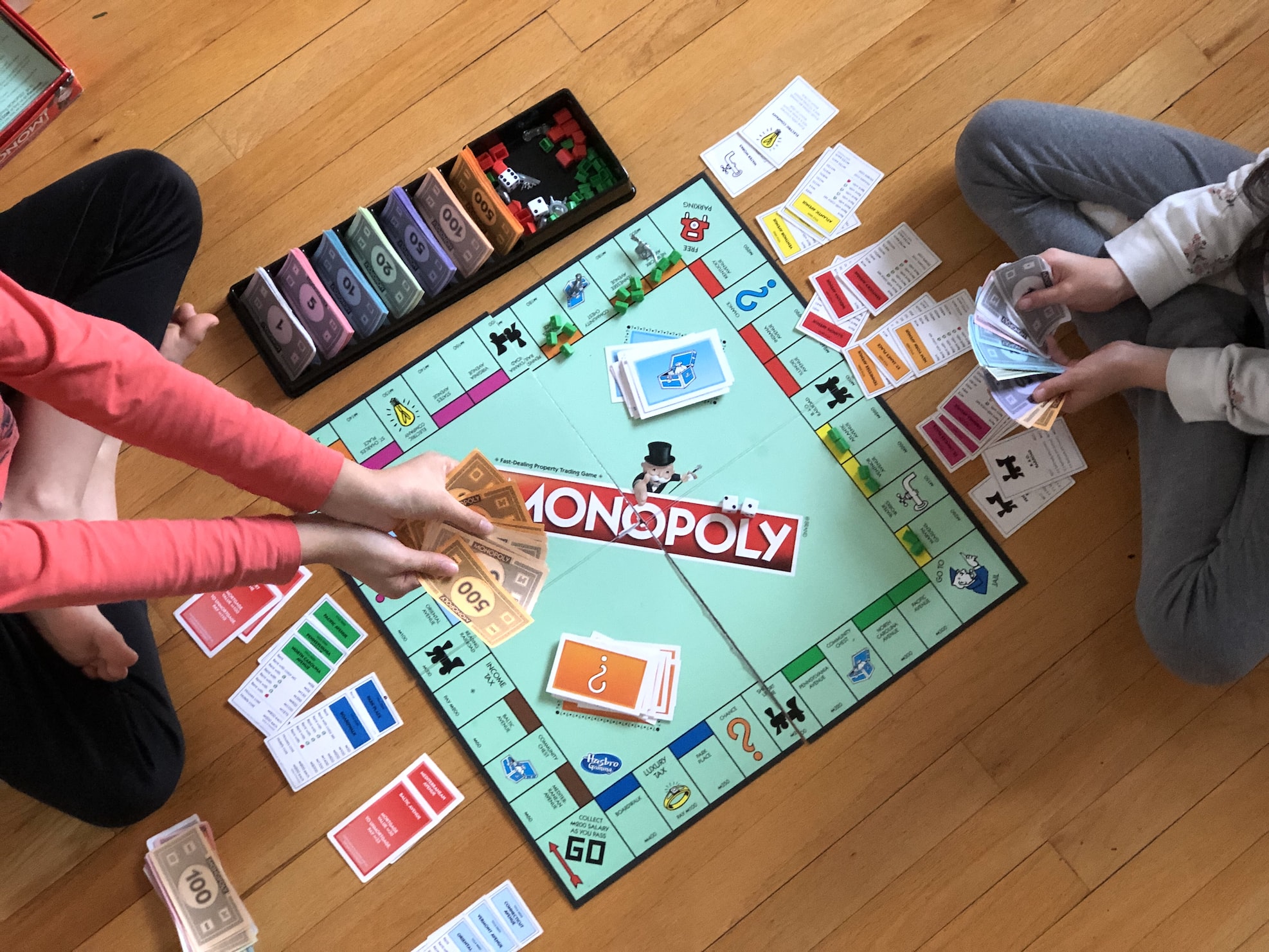
Improving Communication:
Board games provide an informal setting for family members to communicate openly. Games that involve trading, negotiating, or teamwork require players to articulate their thoughts and listen to others. This can be particularly beneficial for children and teenagers, helping them develop their communication skills in a supportive environment.
Learning from Each Other:
Family game nights are also an opportunity for different generations to learn from one another. Children can learn valuable lessons from adults, such as strategy or patience, while adults can be reminded of the joy and creativity of a child’s perspective.
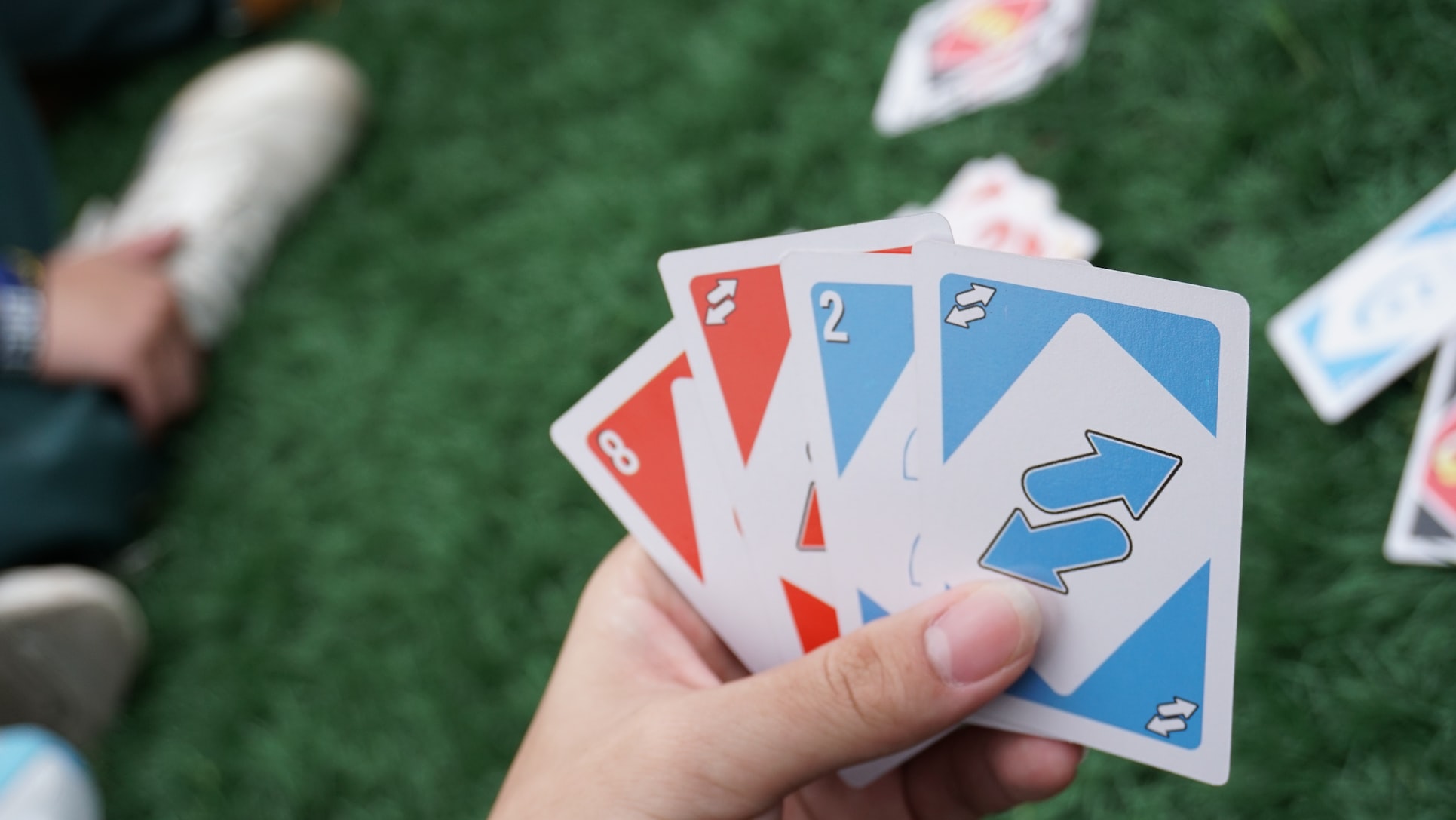
Building Traditions:
Establishing a regular family game night can become a cherished tradition, one that offers a consistent opportunity for family members to connect and relax together. These traditions help in creating a sense of belonging and identity within the family.
Fostering Emotional Connection:
Playing games together can lead to a greater emotional connection among family members. Laughing, cheering each other on, and even navigating the ups and downs of a game can deepen empathy and understanding within the family unit.
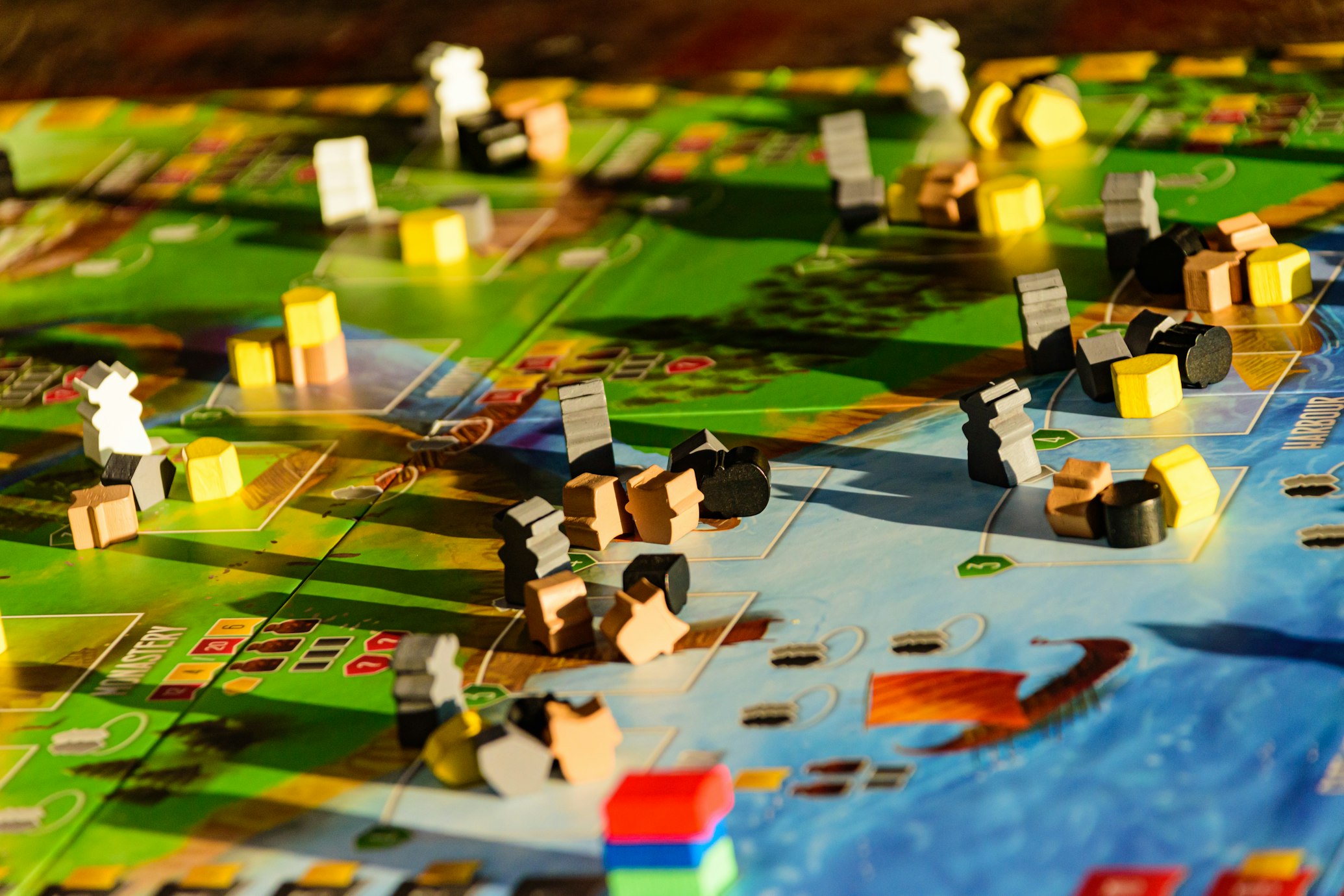
Reducing Stress and Promoting Relaxation:
In addition to being fun, board games can be a great stress reliever. They offer a playful escape from daily routines and challenges, allowing family members to unwind and enjoy each other’s company in a relaxed setting.
In conclusion, family game nights are much more than a way to pass the time; they are a powerful tool for strengthening family bonds. Through cooperation, communication, and shared joy, board games can bring families closer together, creating a foundation of love and mutual respect that lasts a lifetime.
Game Night Essentials
Organizing a successful family game night goes beyond just picking the right games. It’s about creating an atmosphere that is inviting and comfortable for everyone. In this section, we’ll discuss the key elements that make up the perfect game night, from setting the right environment to ensuring everyone stays engaged and has fun.
Choosing the Right Environment:

The setting for your game night plays a crucial role in its success. Choose a comfortable and spacious area where everyone can gather around and have easy access to the game. Ensure good lighting and a quiet space where family members can focus on the game and interact with each other without distractions.
Preparing Snacks and Refreshments:
No game night is complete without snacks! Opt for light, easy-to-handle snacks that won’t interrupt gameplay. Finger foods, popcorn, and small treats are great options. Also, have a variety of drinks available to keep everyone hydrated and happy.
Setting Up the Game Space:
Make sure there’s enough room at the table for all players and the game components. A well-organized game space helps keep the gameplay smooth and enjoyable. Consider having extra chairs or cushions for added comfort.
Selecting a Variety of Games:
Have a variety of games on hand to suit different moods and preferences. Include a mix of strategy, party, and quick-play games to keep things interesting and cater to different tastes throughout the night.
Involving Everyone in the Game Selection:
Make game selection a part of the fun. Allow family members to take turns choosing games or vote on what to play next. This ensures everyone feels involved and increases the anticipation for the games to come.
Setting Clear Rules and Expectations:
Before starting, make sure everyone understands the rules of the game. Consider having a quick run-through for new games or for players who are less familiar. It’s also important to set a tone of friendly competition and good sportsmanship.
Keeping the Atmosphere Light and Fun:
Remember, the primary goal of game night is to have fun and bond as a family. Keep the atmosphere light and encourage laughter and conversation. If competition gets too intense, remind players that the spirit of the game is to enjoy each other’s company.
Taking Breaks When Needed:
During longer game nights, it’s important to take short breaks. This allows players to stretch, grab a snack, or just chat. Breaks can help maintain energy levels and keep everyone engaged.
Capturing the Moments:
Consider taking a few photos or even keeping a game night journal. This can be a wonderful way to remember the fun times and share them with others or look back on them in the future.
In summary, the essentials of a successful game night are not just about the games themselves but also about creating an environment that fosters fun, engagement, and family bonding. With the right setup, snacks, and attitude, your family game night is sure to be a hit!
Top Family Board Games
Choosing the right board game can be the key to a successful family game night. With countless options available, it can be overwhelming to select the perfect game. To help you out, we’ve compiled a list of top family board games that have proven to be favorites across many households. Whether you’re looking for strategy, laughter, or cooperative play, there’s a game here for every family.
Catan

- Game Type: Strategy
- Ideal For: Ages 10 and up
- What Makes It Great: Catan is a game of resource gathering and trading, where players aim to build the most impressive settlements on the island of Catan. It’s perfect for families who enjoy strategy and negotiation.
Ticket to Ride

- Game Type: Strategy
- Ideal For: Ages 8 and up
- What Makes It Great: This game involves collecting train cards to claim railway routes connecting cities across North America. It’s easy to learn and offers both strategic depth and a fun way to learn geography.
Codenames

- Game Type: Word/Puzzle
- Ideal For: Ages 14 and up
- What Makes It Great: This team-based word association game is perfect for families who love puzzles and wordplay. It encourages creative thinking and teamwork.
Pandemic

- Game Type: Word/Puzzle
- Ideal For: Ages 14 and up
- What Makes It Great: This team-based word association game is perfect for families who love puzzles and wordplay. It encourages creative thinking and teamwork.
Carcassonne

- Game Type: Tile-Placement
- Ideal For: Ages 7 and up
- What Makes It Great: This game involves placing tiles to build medieval landscapes. It’s easy to learn but offers enough strategic depth to keep players engaged. It’s great for families who enjoy games that blend strategy with creativity.
Uno
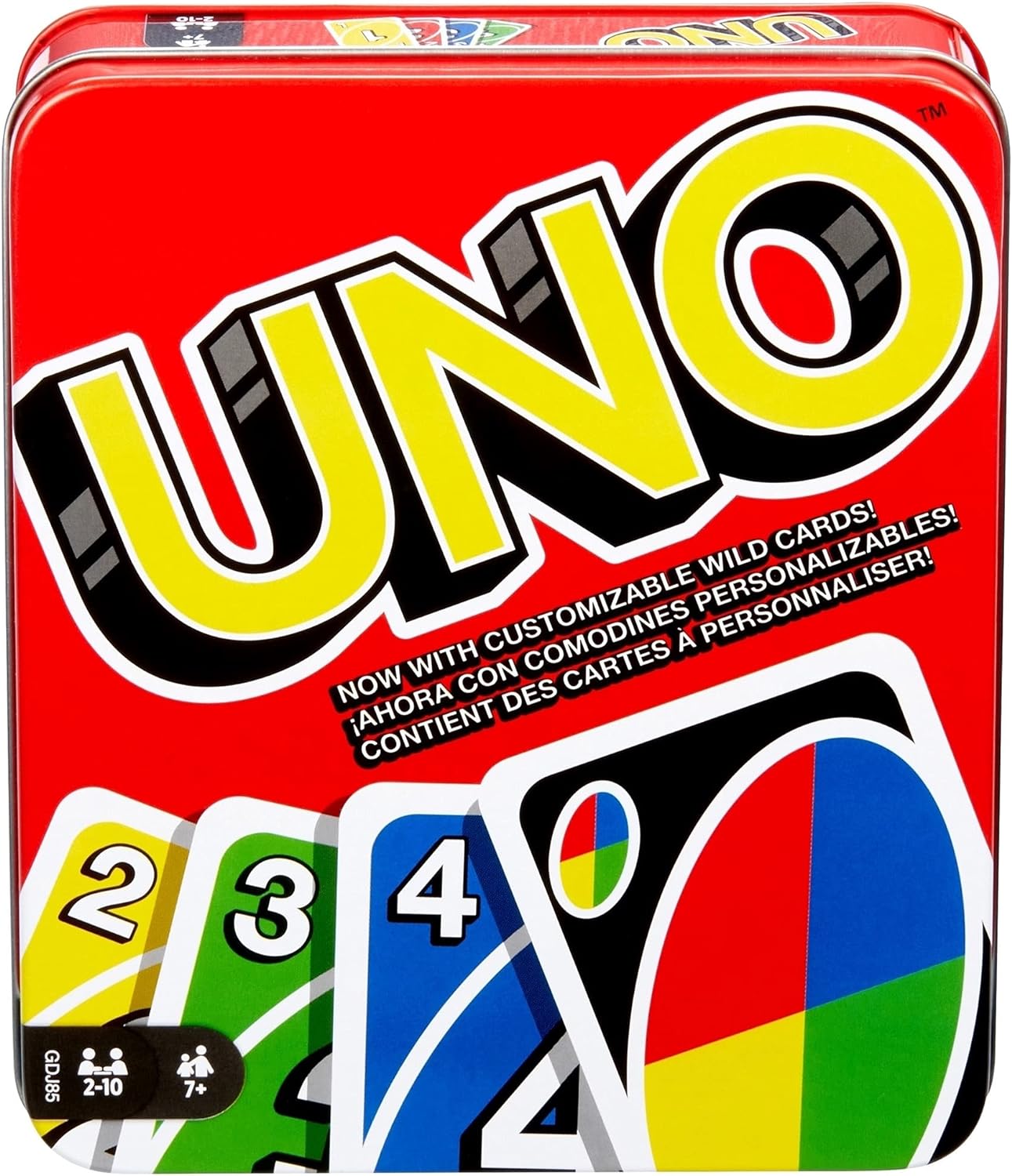
- Game Type: Card Game
- Ideal For: Ages 7 and up
- What Makes It Great: Uno is a classic card game that’s simple to understand and fast-paced. It’s perfect for families looking for a light and fun game that everyone can enjoy.
Apples to Apples

- Game Type: Card Game
- Ideal For: Ages 7 and up
- What Makes It Great: Uno is a classic card game that’s simple to understand and fast-paced. It’s perfect for families looking for a light and fun game that everyone can enjoy.
Scrabble

- Game Type: Word
- Ideal For: Ages 8 and up
- What Makes It Great: Scrabble is not just a fun game; it’s a way to improve vocabulary and spelling skills. It’s perfect for families who enjoy a challenging and educational word game.
Forbidden Island

- Game Type: Cooperative
- Ideal For: Ages 10 and up
- What Makes It Great: In this game, players work together to collect treasures and escape from a sinking island. It’s an excellent choice for families who enjoy adventure-themed games and cooperative play.
Blokus

- Game Type: Abstract Strategy
- Ideal For: Ages 5 and up
- What Makes It Great: Blokus is a colorful and easy-to-learn game that involves fitting pieces on a board. It’s great for families with young children and encourages spatial thinking.
In conclusion, these board games are not just about winning or losing; they’re about spending quality time together, challenging each other’s minds, and most importantly, having fun as a family. Each game offers a unique experience, ensuring that your family game nights are always fresh and exciting.
Enhance Your Gaming with Accessories
While the board games themselves are the stars of any game night, the right accessories can significantly enhance the experience. These additions can range from practical items that streamline gameplay to decorative touches that add to the thematic atmosphere. Here, we’ll explore various accessories that can elevate your board game experience.
Custom Game Pieces:
What It Offers:
Replacing standard game pieces with custom or thematic ones can make the game more visually appealing and immersive. For instance, using detailed miniatures in a fantasy game can bring the story to life.
Ideal For:
Games with a strong theme or narrative.
Timers and Hourglasses:
What It Offers:
Using timers can add a sense of urgency and excitement to games. They’re especially useful in party games where quick thinking is part of the fun.
Ideal For:
Fast-paced games or party games.
Organizers and Insert Trays:
What It Offers:
Using timers can add a sense of urgency and excitement to games. They’re especially useful in party games where quick thinking is part of the fun.
Ideal For:
Fast-paced games or party games.
High-Quality Playing Cards:
What It Offers:
Upgrading to high-quality, durable playing cards can enhance the tactile experience and ensure the longevity of the game.
Ideal For:
Card-driven games.
Scorecards and Notepads:
What It Offers:
Custom scorecards or notepads can make tracking points or game progress easier and more enjoyable.
Ideal For:
Strategy games or games with complex scoring.
Playmats:
What It Offers:
A good playmat not only protects your game and table but can also provide a thematic backdrop to the gameplay, enhancing the overall experience.
Ideal For:
Card games or games with delicate components.
Ambient Lighting and Music:
What It Offers:
Setting up thematic lighting or background music can create an immersive atmosphere that matches the game’s theme.
Ideal For:
Thematic or narrative-driven games.
Custom Dice:
What It Offers:
Customized or thematic dice can add a special touch to any game, making rolling the dice even more exciting.
Ideal For:
Dice-driven games.
Expansion Packs:
What It Offers:
Expansion packs add new dimensions, challenges, and replayability to your favorite games. They often introduce new rules, components, and themes.
Ideal For:
Games that are frequently played and enjoyed by the family.
3D Printed Add-ons
What It Offers:
3D printed components, such as unique tokens or game piece holders, can personalize and enhance the game experience.
Ideal For:
Enthusiasts who enjoy a personalized gaming experience.
Mobile Apps:
What It Offers:
Many board games have accompanying mobile apps that can serve as timers, scorekeepers, or even add digital elements to the gameplay.
Ideal For:
Tech-savvy families and games with complex scoring or timekeeping.
Incorporating these accessories into your game nights can make the experience more enjoyable, organized, and immersive. Whether it’s through practical items like organizers and timers or decorative touches like custom pieces and ambient music, these enhancements can make your family game nights even more memorable and fun.
Conclusion
As we’ve explored in this comprehensive guide, family game nights are more than just an entertaining diversion; they’re a rich tapestry of engagement, learning, and connection. Board games offer a unique blend of fun, challenge, and educational value, making them an ideal activity for families looking to strengthen their bonds and create lasting memories.
From the strategic depths of games like “Catan” and “Ticket to Ride” to the cooperative challenges of “Pandemic,” each game offers a unique window into different worlds, encouraging imagination, strategic thinking, and teamwork. The diverse range of games available ensures that there’s something for everyone, regardless of age or interest.
The educational aspect of board games cannot be overstated. They subtly enhance skills such as critical thinking, communication, and problem-solving, making them a valuable tool for cognitive development. Moreover, they provide an opportunity for family members to learn from each other, sharing knowledge and experiences across generations.
But perhaps the most significant aspect of board games is their ability to bring people together. In a world increasingly dominated by screens and individual activities, board games offer a much-needed chance for face-to-face interaction and genuine connection. They remind us of the joy of shared experiences and the importance of taking time to enjoy each other’s company.
Finally, remember that the essence of family game night lies not in the games themselves, but in the laughter, conversations, and moments shared around the game table. Whether you’re strategizing over “Chess,” laughing through “Apples to Apples,” or embarking on an adventure in “Dungeons & Dragons,” the true magic of board games lies in their ability to unite us in play and companionship.
So, gather your family, choose your games, and get ready to embark on a journey of fun, learning, and togetherness. Here’s to many memorable family game nights ahead!

